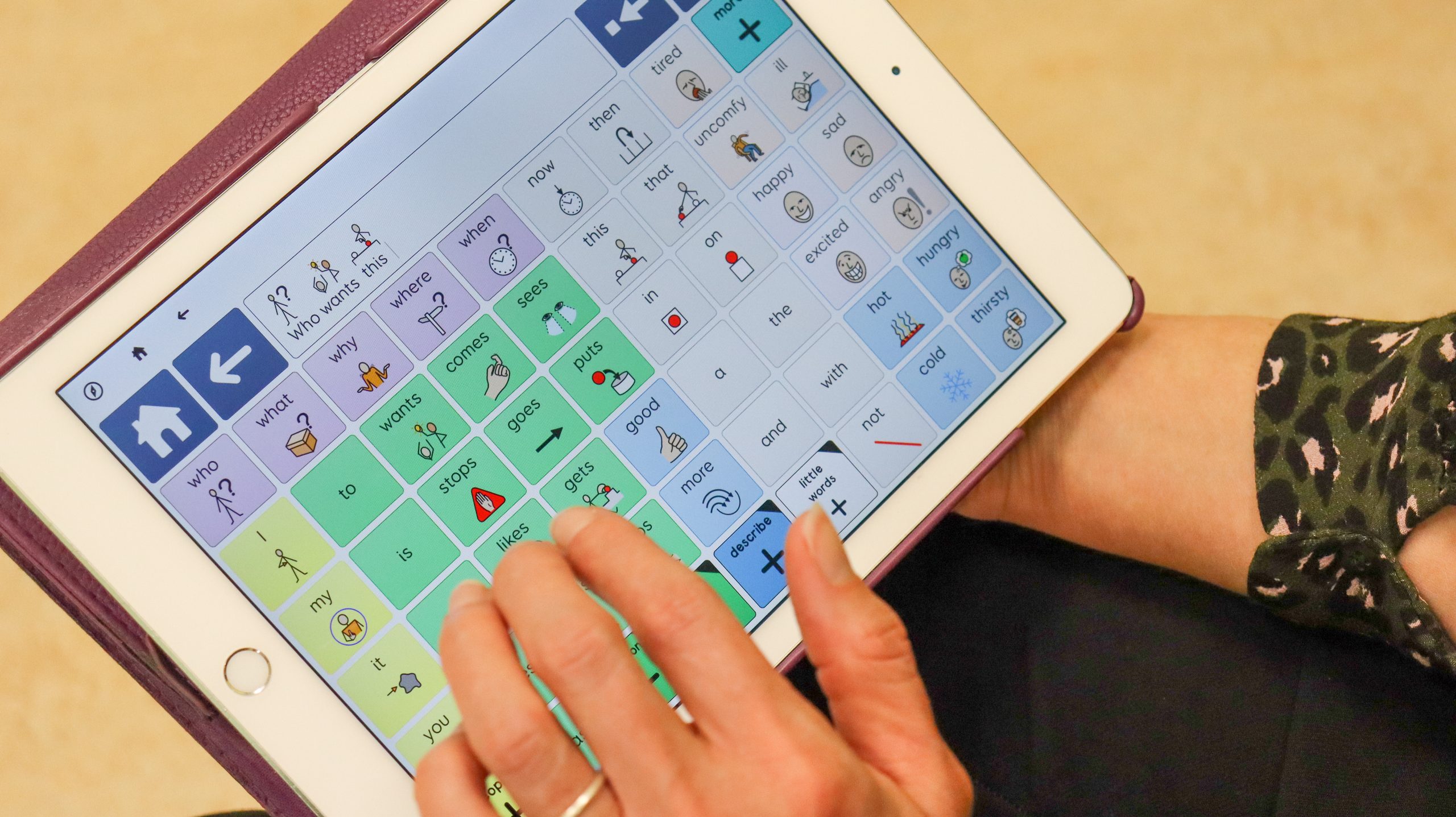Summer Communication Appeal
From the moment someone suffers a traumatic brain injury – perhaps through a road accident or fall – has a stroke, or is diagnosed with a degenerative condition, their life changes dramatically. The same is true for their family and friends.
The person may face physical challenges such as a reduction in mobility, and speech and language limitations, and their personality can change. They face an uncertain future and often feel frightened, lonely and frustrated by the loss of abilities they once took for granted, such as communication.
At the RHN, a multi-disciplinary rehabilitation team begins developing care and treatment plans for every patient as soon as they are admitted. As part of that assessment, patients will meet with the Assistive Technology Team who will help to identify the best technology to meet their communication needs. The goal is to enable a patient to communicate with their family and care team and be independent enough to carry out tasks such as calling for a nurse, changing the TV channel or operating the lights in their room.
Assistive Technology is vitally important. Restoring communication and choice allows patients and residents to live their new life with autonomy, independence and freedom of expression. Examples of some of the benefits of Assistive Technology include:

- Helping someone with a brain injury to improve their concentration or work on their problem-solving abilities, using computer games
- Helping someone with Multiple Sclerosis to maintain their range of movement and strength, using specialist game controllers that measure their physical function
- Helping someone who wants to e-mail, text or video call their family, but requires specially adapted equipment to enable them to do so independently
For patients whose primary goal is communication, our Assistive Technology team often makes use of I-pads. These popular tablet computers are familiar and easy to use for most patients, and there are a variety of programmes available that can be used by patients with verbal communication difficulties. They include:
- A simple on-screen QWERTY keyboard for patients still able to type in the traditional way
- On-screen buttons, (such as the one pictured) pre-programmed with words and phrases for patients less able to type
- Picture programmes that allow images to stand in for entire sentences, allowing patients to communicate entire phrases, such as “I want to go to bed now,” with just one tap on the screen
We currently have several I-pads on loan to patients at the hospital for assessment and communication purposes, but with a number of other patients who could potentially benefit from their use, we desperately need more.
That’s why we’re launching a £15,000 Communication Appeal this summer to purchase eight new I-pads and provide the therapy sessions our patients need in order to meet their communication goals.
To hit our target we’ll need your help.
- £25 would buy the programmes needed for each I-pad
- £50 would pay for a single therapy session in the hospital computer room
- £100 would support the purchase of a new I-pad to loan to a patient who needs it
- A very special gift of £500 would buy one I-pad
Any gift you can give will mean that we can continue to help those patients who could benefit from Assistive Technology, allowing them to communicate, express themselves, and maintain their independence.
Please consider giving whatever you can to our Communication Appeal today.